Redeployment
by Phil Klay
"The object of war is not to die for your country but to make the other bastard die for his." --George S. Patton
Recent American wars have made the term "redeployment" a household word. Troops are moved around, withdrawn and redistributed in one big seemingly endless war. Phil Klay's stunningly fine and poignant debut collection of short stories, Redeployment, uses the word "war" both as military language and as the world his characters inhabit. These 18, often brutal stories are told by different narrators who have a variety of jobs and ranks. The tone and style throughout is understated, quiet, reserved--in perfect counterbalance to the horrific events that are being described.
Klay is a veteran of the U.S. Marine Corps and served in Iraq during the surge as a public affairs officer. His very first published story leads off this collection and gives it its title: "Redeployment." It's a microcosmic tale of the Iraq war and putting down a dog. It starts: "We shot dogs. We did it on purpose, and we called it Operation Scooby." The narrator's name is Sgt. Price and when he comes home, like every other soldier, he has to adjust, and it doesn't go well.
His wife is waiting for him at the airport. "She was wearing cammie shorts and a tank top, even though it was cold. She must have worn them for me." They hug: "her body was soft and it fit into mine.... I hadn't felt anything like her in seven months." Cheryl asks him to drive home and he does: "It gave me something to focus on. Go down this street, turn the wheel... one step at a time." He spends time with his fellow soldiers, drinking and drinking. He walks around a mall and thinks, "In a city there's a million places they can kill you from." He's tense, he's "orange" not "white"--where's my weapon, where's my squad, my buddy, who's that up on the stairway. His dog Vicar is ill and he refuses to let anyone put him down. It's his job. He shoots dogs. He aims his M16--"The target should be blurry."
"Frago" is about a raid on an IED factory filled with hajjis. They take three teams, with the third in reserve, as usual. They've had an easy deployment; it's led by Malrosio--"Sometimes it helps to be led by an idiot." The mission goes well; only one soldier is wounded, and their plans change when a "frago," or fragmentary order, is issued. Their reward for the successful mission and taking the injured soldier to the hospital is a hot meal in their cafeteria, on Sunday cobbler day. Cherry's the best. They might not be so lucky tomorrow.
The mix of boredom and fear soldiers on the front face is dealt with in "After Action Report." Between boredom and normal terror, there's pure terror, "when your heart rate skyrockets and your vision closes in and your hands are white and your body is humming. You can't think. You're just an animal, doing what you've been trained to do." When the terror and confusion reaches a certain level, your commander may ask if you "want to go see the wizard [for combat stress] about it."--"No. No, I'm fine."
Right out of Catch 22, things lighten up a bit with "Money as a Weapons System," a hilarious (and bleak) tale told by a Foreign Service Officer who heads an embedded Provincial Reconstruction Team near Tikrit. It's about the absurd amount of money that has been wasted in Iraq on useless projects; sheiks in isolated areas who now live in mansions surrounded by grass; a million-dollar water pumping station with pipes too narrow to actually pump water; a school built years ago that has never been used; and boxes and boxes of kids' baseball uniforms from the mattress king of northern Kansas.
One of the shortest pieces in the collection could be a modern take on Hemingway's "A Very Short Story." Titled "OIF," it's barely four pages and consists largely of military acronyms, starting with the title: Operation Iraqi Freedom. You won't know many of these, but that only adds to the de-personalization of the people and the terms. A HMMWV is IED'd and the PFC's Eye Pro "cracked and warped in the heat." J-15's legs are left behind but "at least he got CASEVAC'd to the SSTP and died on the table." With a nod to Randall Jarrell's famous anti-war poem, "The Death of the Ball Turret Gunner," Klay goes on to write: "PRP had to wash PFC out with Simple Green and peroxide." Our narrator survives: "That KIA means they gave everything. That WIA means I didn't."
There's little about the policymakers here, the politicians; Klay's focus is on the men who have to enforce those policies, who have sacrificed for others' decisions. In the final story, "Ten Klicks South," Klay writes powerfully about dead soldiers coming home. Personal effects are gathered, wedding rings removed, bodies prepared for transport. "And as it was unloaded off the bird, the Marines would have stood silent and still, just as we had in Fallujah. And they would have put it on a C-130 to Kuwait. And they would have stood silent and still in Kuwait. And they would have stood silent and still in Germany, and silent and still at Dover Air Base. Everywhere it went. Marines and sailors and soldiers and airmen would have stood at attention as it traveled to the family of the fallen, where the silence, the stillness, would end."
On the crowded shelf of war literature, right along with The Iliad, The Red Badge of Courage, The Things They Carried and Billy Lynn's Long Halftime Walk, we can proudly add Redeployment. Sadly, it's a never-ending list. --Tom Lavoie



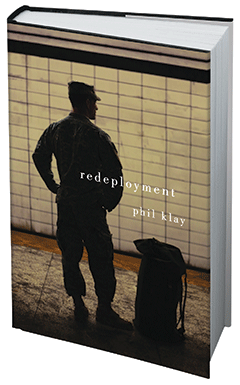
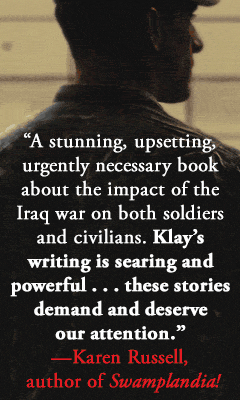
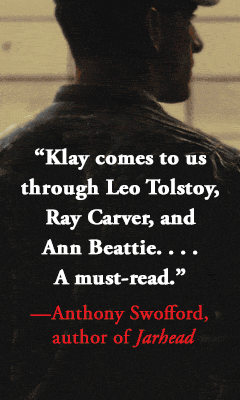
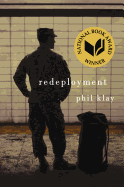


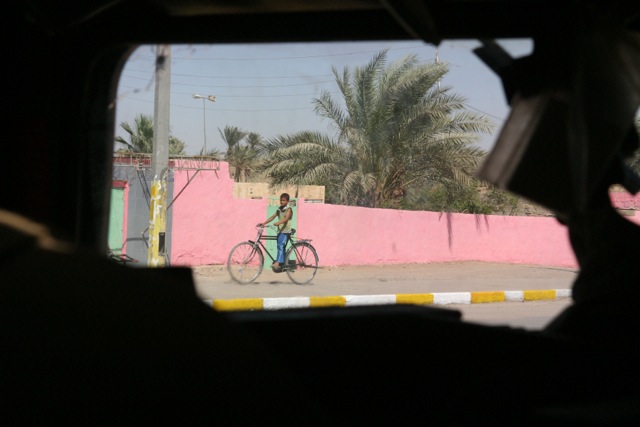 The problem is that within that group of people who have been to war there's as much variation of experience as there is within any other type of human activity. And I wanted to tease out some of those differences. The narrators of my stories interpret what they've been through in different ways. They go through radically different experiences and make very different choices. I wanted them to argue against each other and so open a place for the reader to enter in and engage. I don't necessarily think that the person who has been through an experience gets to be the ultimate arbiter of what that experience means.
The problem is that within that group of people who have been to war there's as much variation of experience as there is within any other type of human activity. And I wanted to tease out some of those differences. The narrators of my stories interpret what they've been through in different ways. They go through radically different experiences and make very different choices. I wanted them to argue against each other and so open a place for the reader to enter in and engage. I don't necessarily think that the person who has been through an experience gets to be the ultimate arbiter of what that experience means.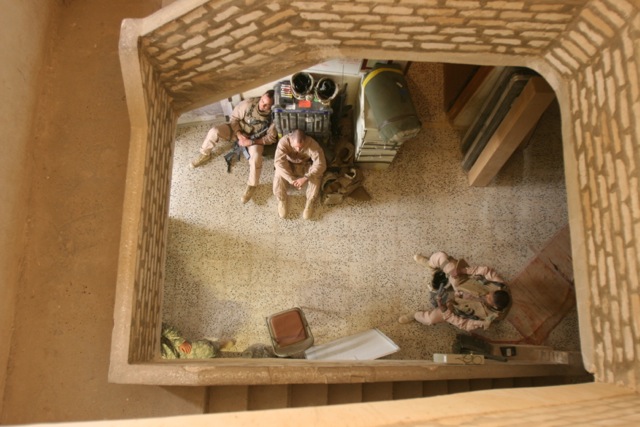 A few stories deal with soldiers who are now back and adjusting.
A few stories deal with soldiers who are now back and adjusting.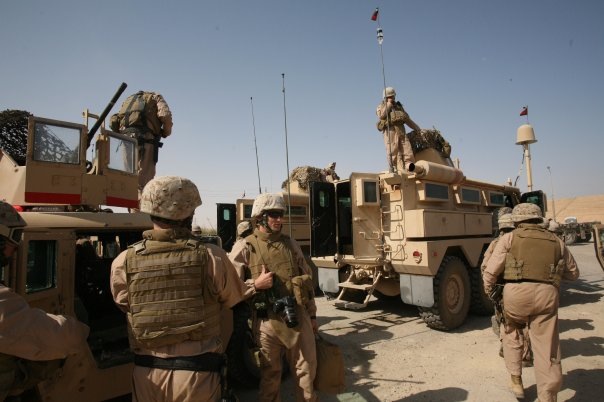 Is there something(s) you think people don't understand or grasp or appreciate as much as they should?
Is there something(s) you think people don't understand or grasp or appreciate as much as they should?